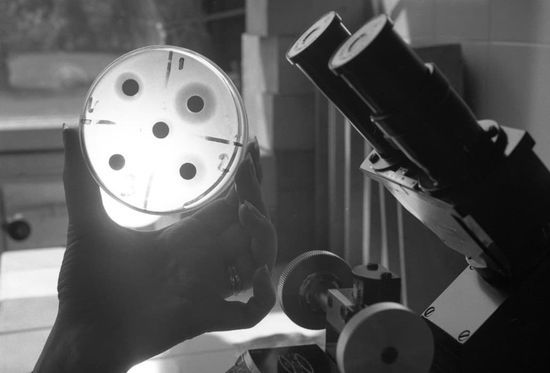
Microbes are living organisms that can be beneficial, neutral or harmful to humans. A basic understanding of microbiology will allow you to recognize how your role as an Infection Prevention and Control (IPC) person can help break the cycle of transmission, prevent health care-associated infections (HAI) and reduce antimicrobial resistance (AMR).
Please note: These materials were launched on 03/08/2020.
Photo credit: WHO / P. Almasy
语言: English
COVID-19
课程信息
This course is available in: македонски
Overview: In this course, you will learn about how disease-causing microbes, called pathogens, are classified, identified and transmitted. You will be introduced to basic microbiological principles, fundamental laboratory diagnostics and mechanisms by which microbes transmit and cause diseases.
Learning objectives: By the end of this session, you will be able to:
- define microbes and other microbiology terms;
- describe the chain of infection;
- describe the main groups of microorganisms;
- discuss common multidrug-resistant organisms; and
- describe basic laboratory diagnostics.
Course duration: Approximately 1 hour.
Certificates: A Record of Achievement will be issued to participants who receive at least 70% on the post-test. You have an unlimited number of attempts to meet the threshold. Participants who receive a Record of Achievement can also download an Open Badge for this course. Click here to learn how.